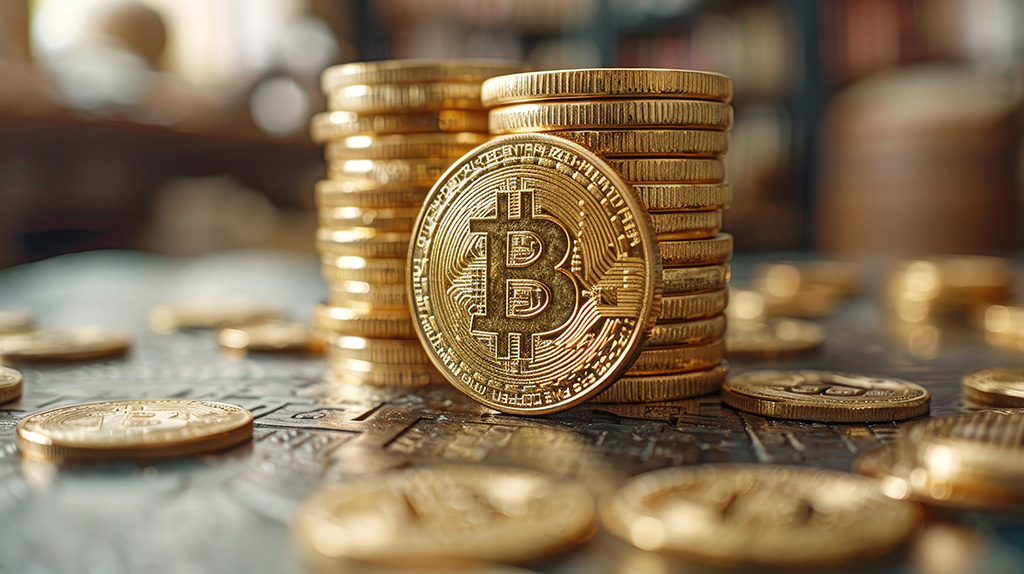As the world navigates persistent geopolitical uncertainty and economic turbulence, investors are increasingly gravitating toward what JPMorgan terms the “debasement trade.” In a research note dated January 3, the financial giant highlighted the enduring appeal of gold and Bitcoin as hedges against currency debasement and systemic risks. This trend, according to JPMorgan, is “here to stay,” as traditional assets struggle to provide the stability and returns investors seek in today’s volatile landscape.
What Is the Debasement Trade?
The debasement trade refers to the strategy of investing in assets that are resistant to the erosion of value caused by currency devaluation, inflation, and excessive money printing. Gold, long regarded as a safe haven, and Bitcoin, often dubbed “digital gold,” have emerged as the frontrunners in this investment strategy.
Central banks worldwide have engaged in aggressive monetary policies over the past decade, exacerbated by the pandemic and subsequent geopolitical shocks. These policies have fueled inflationary pressures and heightened fears of long-term currency debasement. As fiat currencies lose purchasing power, investors are seeking refuge in assets that retain intrinsic or decentralized value.
Gold: The Timeless Safe Haven
Gold has historically been a cornerstone of the debasement trade. Its scarcity, intrinsic value, and universal appeal make it a reliable store of wealth during times of crisis. In 2023, gold prices surged to new highs, driven by geopolitical tensions, central bank gold purchases, and the Federal Reserve’s dovish pivot on interest rates.
JPMorgan’s note highlights that gold’s role in portfolios is not just a reaction to inflation but also a hedge against broader economic instability. Central banks, particularly in emerging markets, have been aggressively increasing their gold reserves, signaling confidence in its long-term value. For retail and institutional investors alike, gold remains a critical asset in hedging against systemic risks.
Bitcoin: The Digital Contender
While gold has centuries of history behind it, Bitcoin represents a modern alternative for the debasement trade. Born out of the 2008 financial crisis, Bitcoin was designed to be resistant to inflation and manipulation, offering a decentralized and finite asset in stark contrast to traditional currencies.
According to JPMorgan’s analysis, Bitcoin is increasingly viewed as “digital gold,” especially among younger investors. Its decentralized nature and fixed supply of 21 million coins make it an attractive hedge against inflationary policies and geopolitical instability.
Bitcoin’s role in the debasement trade has grown as institutional adoption increases. Major corporations, hedge funds, and even sovereign wealth funds are incorporating Bitcoin into their portfolios. Furthermore, the maturation of the crypto market, with innovations like regulated Bitcoin ETFs, has made it easier for traditional investors to participate in this space.
Persistent Geopolitical Uncertainty

Geopolitical uncertainty continues to drive the debasement trade. From ongoing tensions between global superpowers to regional conflicts and economic sanctions, the risks to global stability remain elevated. These factors are compounded by long-term challenges such as supply chain disruptions, energy crises, and climate-related financial risks.
In this environment, gold and Bitcoin are uniquely positioned to benefit. Both assets provide a measure of independence from traditional financial systems, which are often vulnerable to geopolitical shocks. As investors brace for an uncertain future, the appeal of these alternatives is only growing.
A Balanced Approach for Investors
JPMorgan’s research underscores the importance of diversification in navigating today’s challenges. While gold and Bitcoin are both central to the debasement trade, they serve complementary roles. Gold offers a proven hedge against long-term inflation and economic instability, while Bitcoin provides a high-growth, decentralized alternative for a new generation of investors.
Investors are advised to weigh their risk tolerance and investment horizons when incorporating these assets into their portfolios. While gold provides stability, Bitcoin’s volatility and growth potential make it a higher-risk, higher-reward proposition.
Conclusion: A Strategy for the New Era
The debasement trade into gold and Bitcoin reflects a broader shift in investor sentiment. Faced with persistent geopolitical uncertainty and the erosion of fiat currency value, investors are increasingly turning to alternative assets that offer resilience and long-term value.
At Invest Offshore, we recognize the critical role these assets play in modern investment strategies. Whether you’re seeking to diversify with gold, explore the potential of Bitcoin, or invest in emerging offshore opportunities, our expertise can help you navigate this evolving landscape.
As the world enters a new era of uncertainty and opportunity, the debasement trade is not just a trend—it’s a strategy that’s here to stay. Let us guide you in building a resilient portfolio that secures your wealth for the future.

Leave a Reply